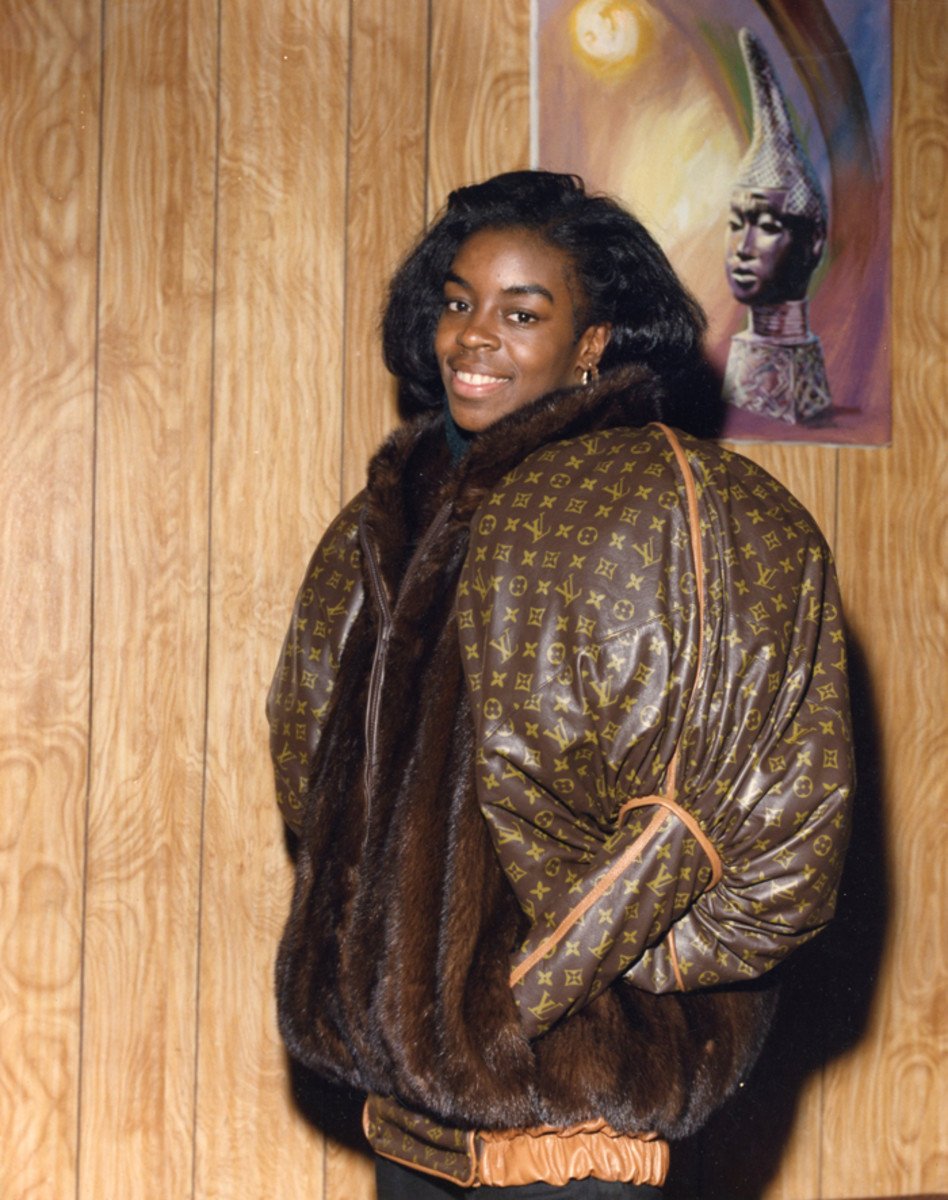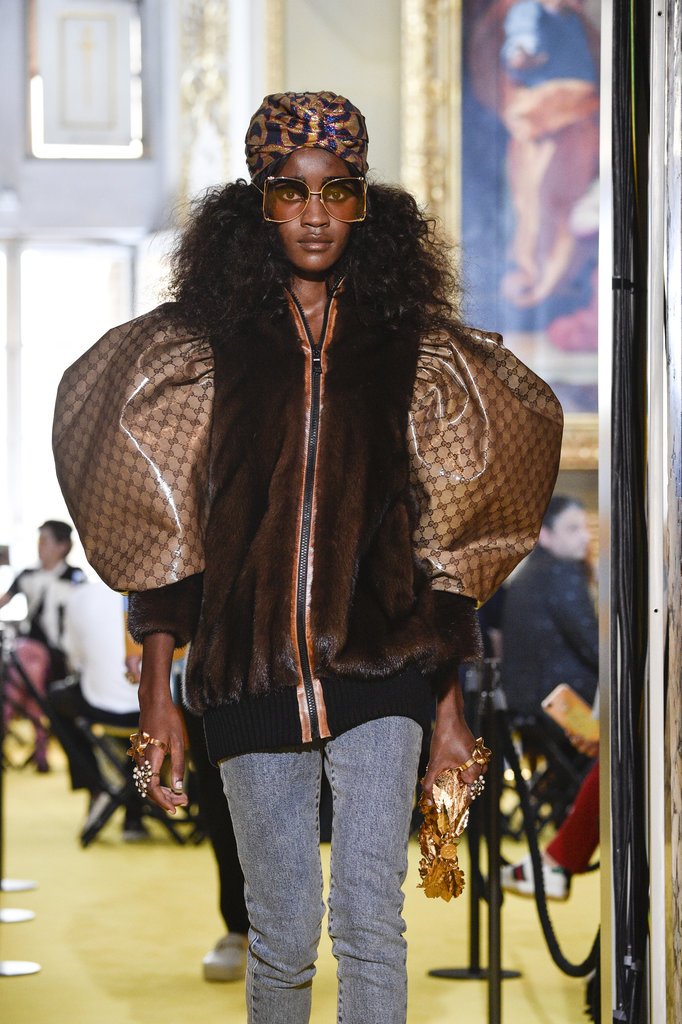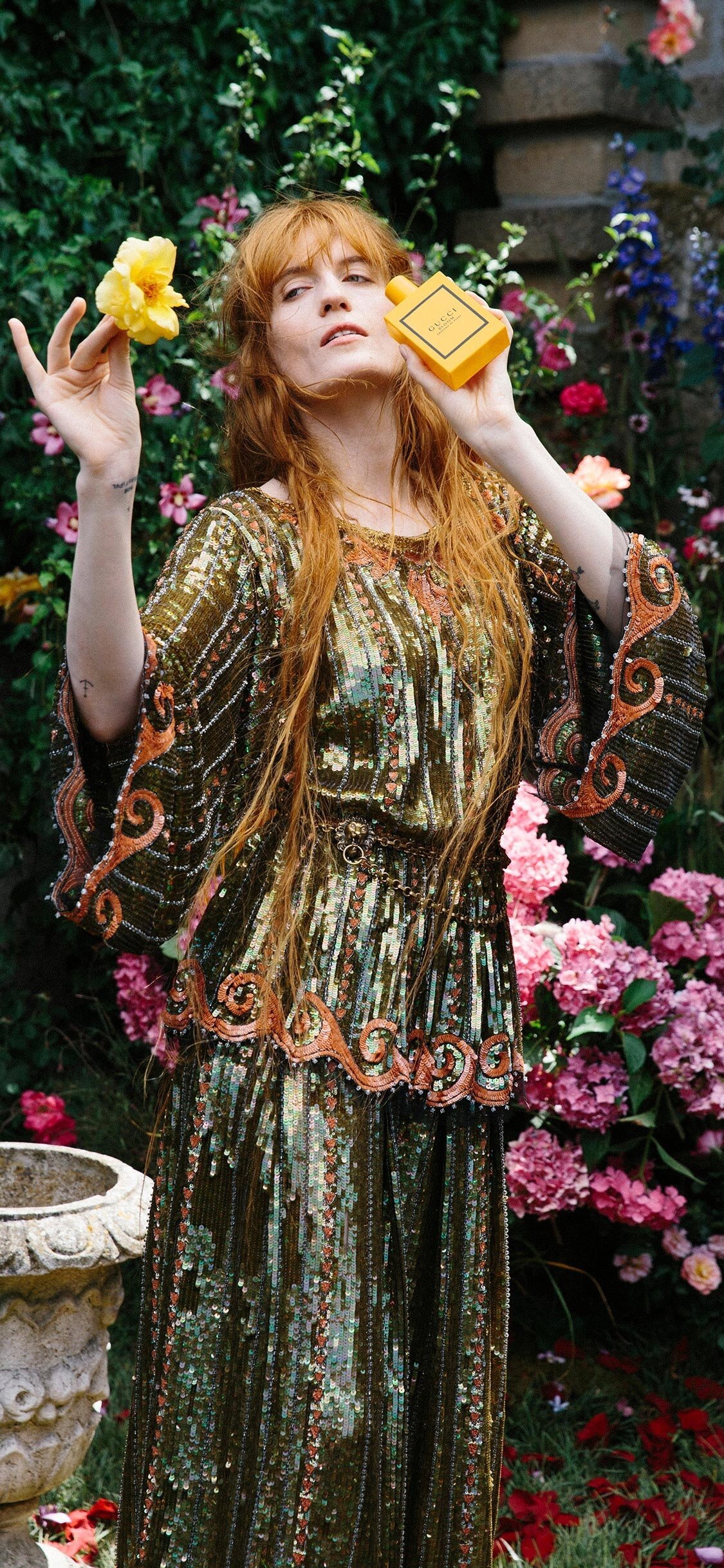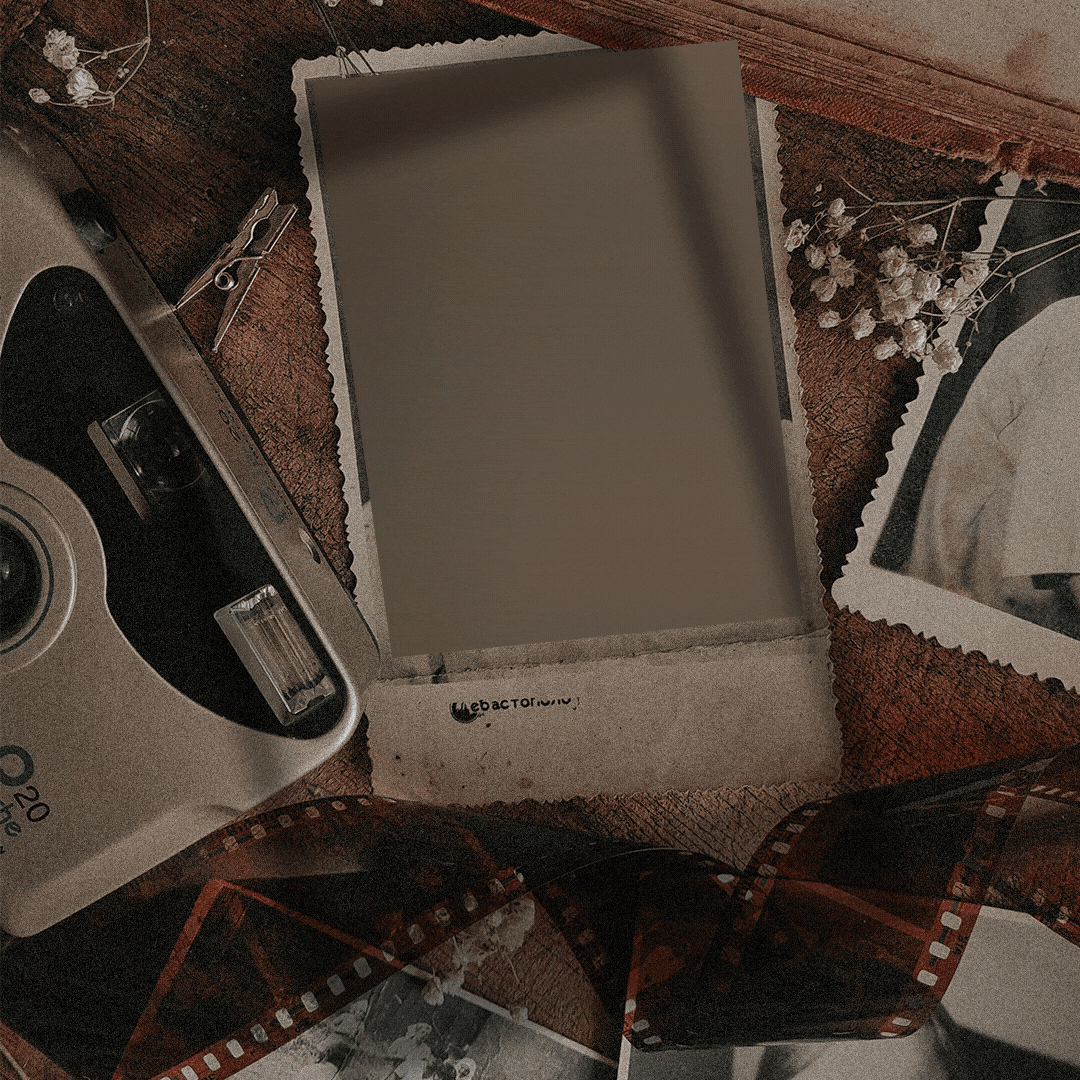Gucci 100: A Centennial Collection and the History of Gucci & the Music Industry
It’s 1921 in Florence, Italy. On Via Vigna Nuova, Guccio Gucci has opened the first store of his eponymous fashion house, Gucci. Having been inspired by the lavish luggage he carried as a bellboy at Savoy Hotel in London, Gucci intended to found a brand of immaculate Italian quality with a focus on aristocratic-like luxury. (WWD.com)
Image via WWD.
Fast forward to 2021 and the house of Gucci is valued at $22.6 billion (Forbes). In celebration of 100 years of business (and of their enormous success as a luxury fashion house), Gucci released a special capsule collection in October 2021, titled Gucci 100. Though, curiously, Gucci did not center their centennial collection around the aristocratic inspiration that drove Guccio Gucci to found the brand. Rather, to honor its heritage, Gucci 100 hones in on the brand’s influence on pop culture, more specifically music (Gucci). Furthermore, Gucci opened five pop-up shops in October specifically for the capsule collection.
Image via Elle.
Upon hearing about the theme of the collection, I wondered why pop culture, and why music specifically? Before musicians like Harry Styles and Lana Del Rey became faces of Gucci (or even Lady Gaga portraying Patrizia Gucci in House of Gucci), what was the historical relationship between the brand and the music industry? Before we dive in, here is a brief look into themes of the Gucci 100 collection.
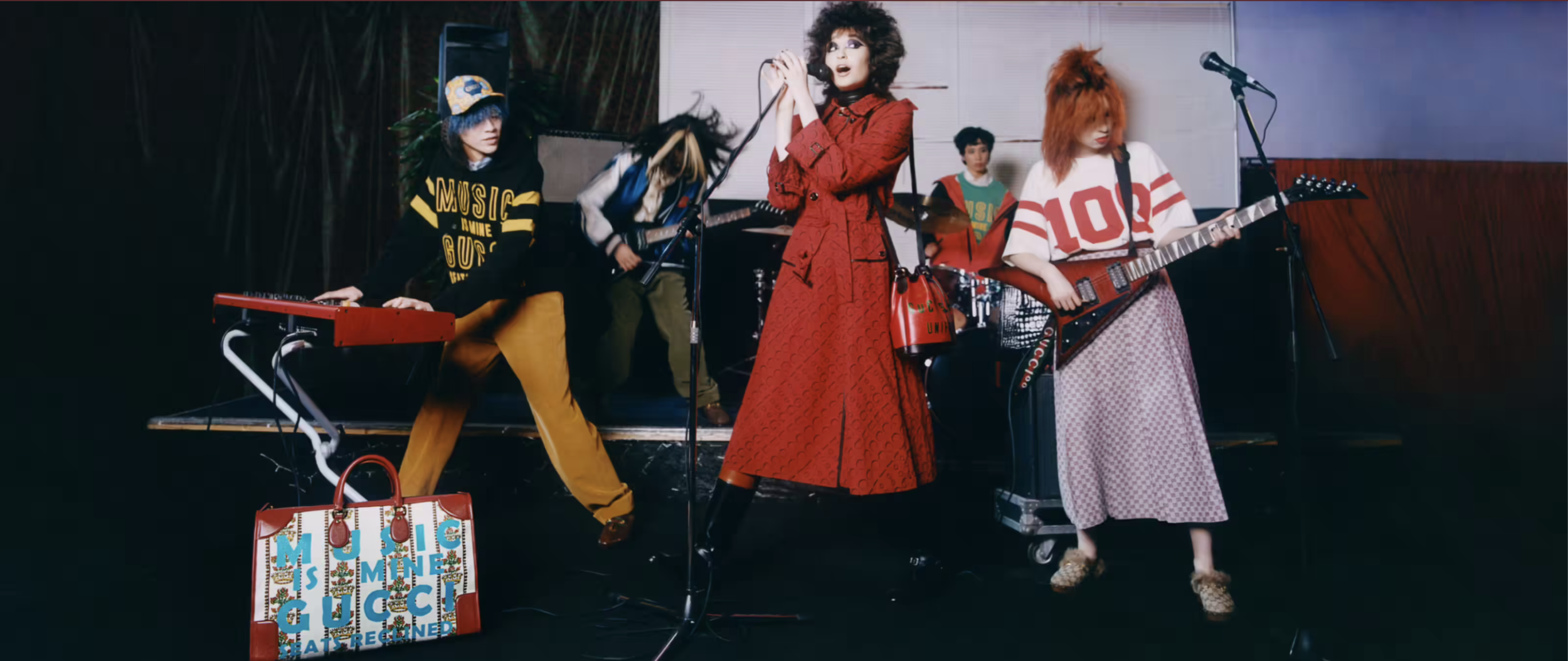
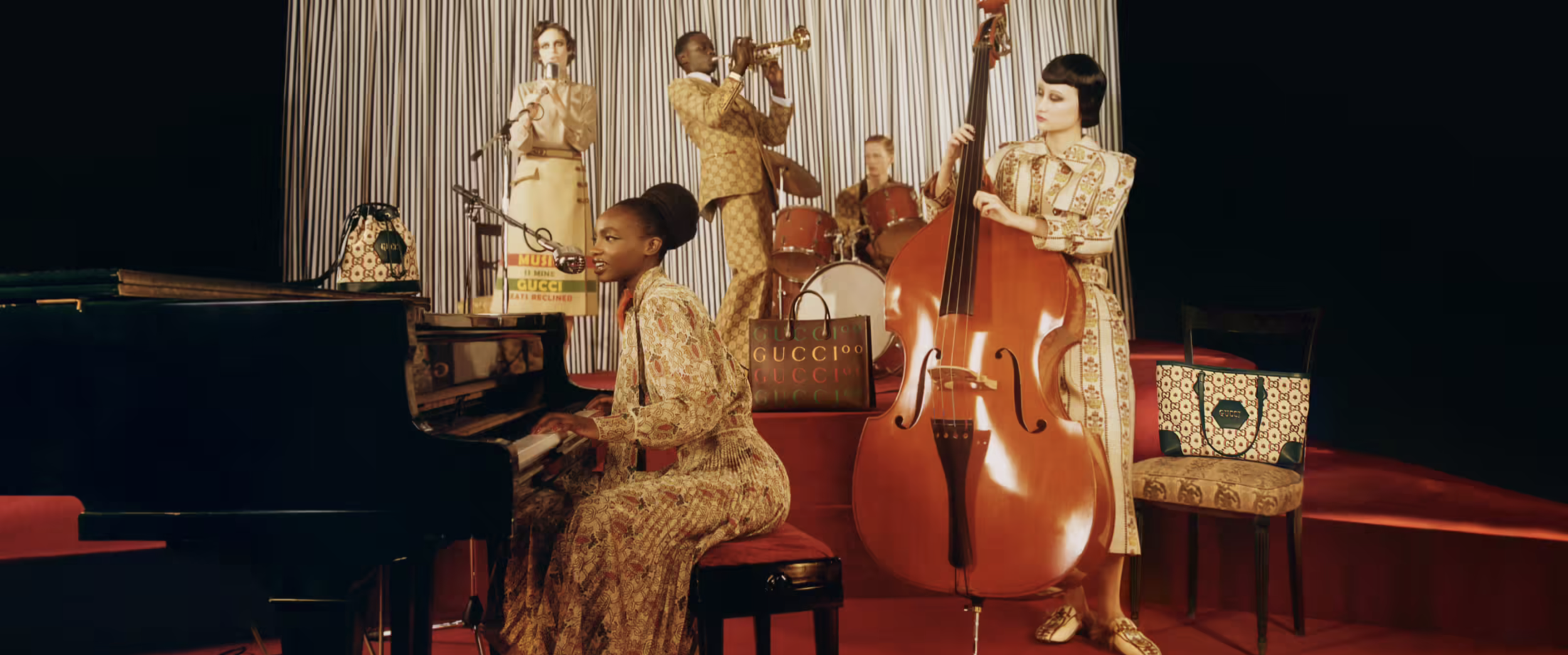
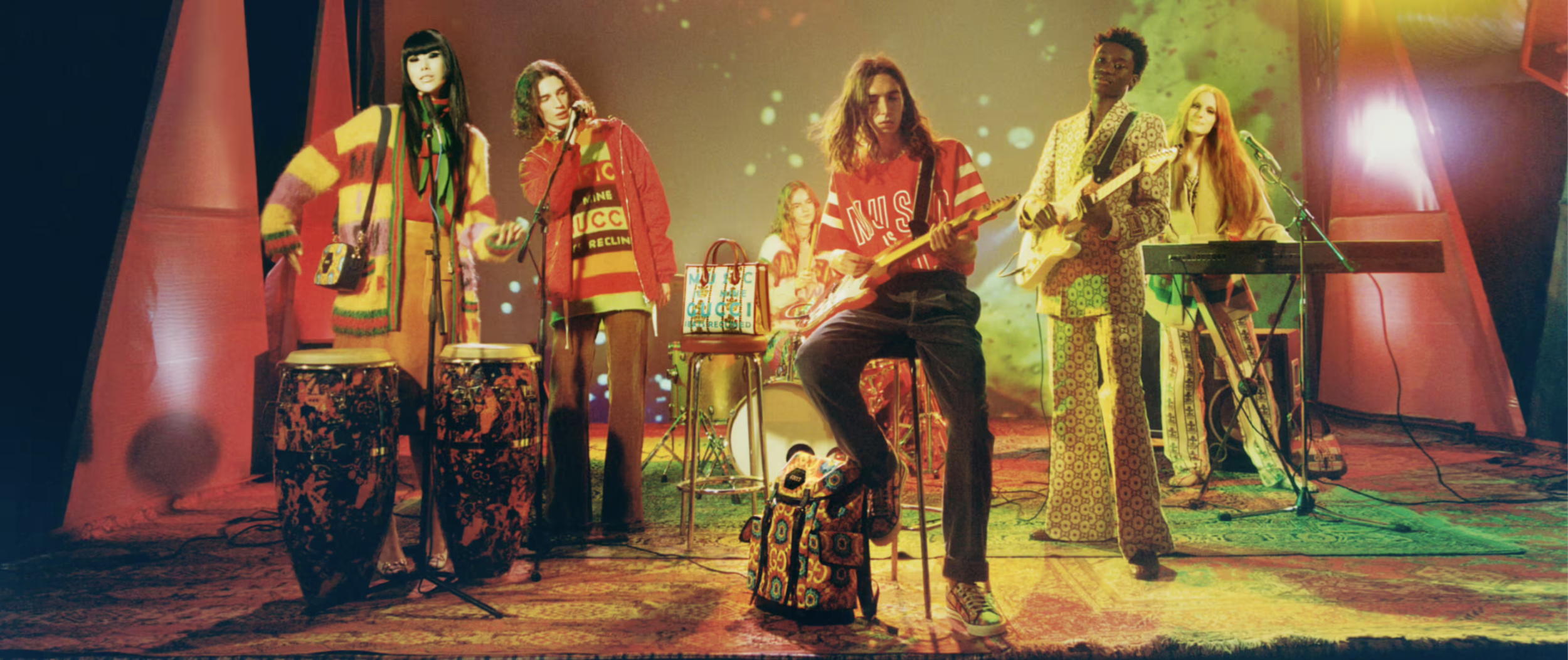
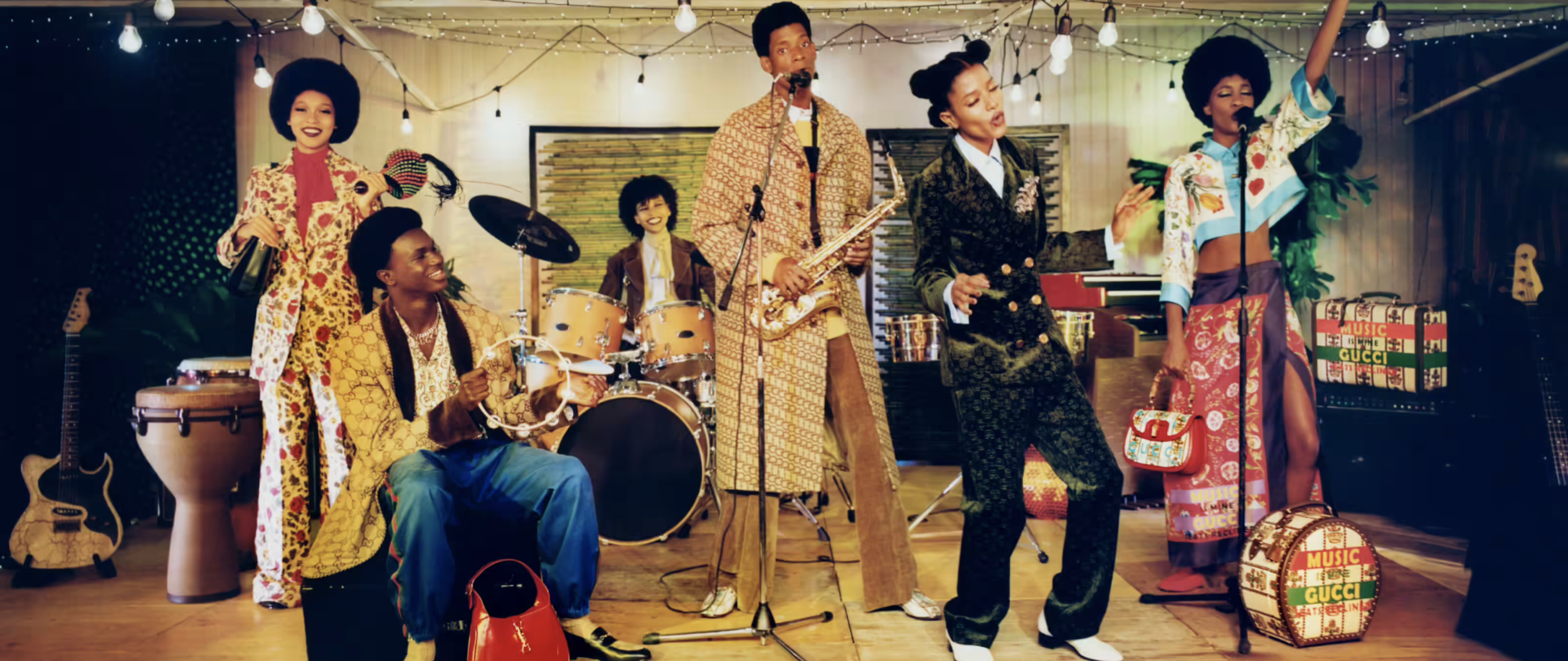
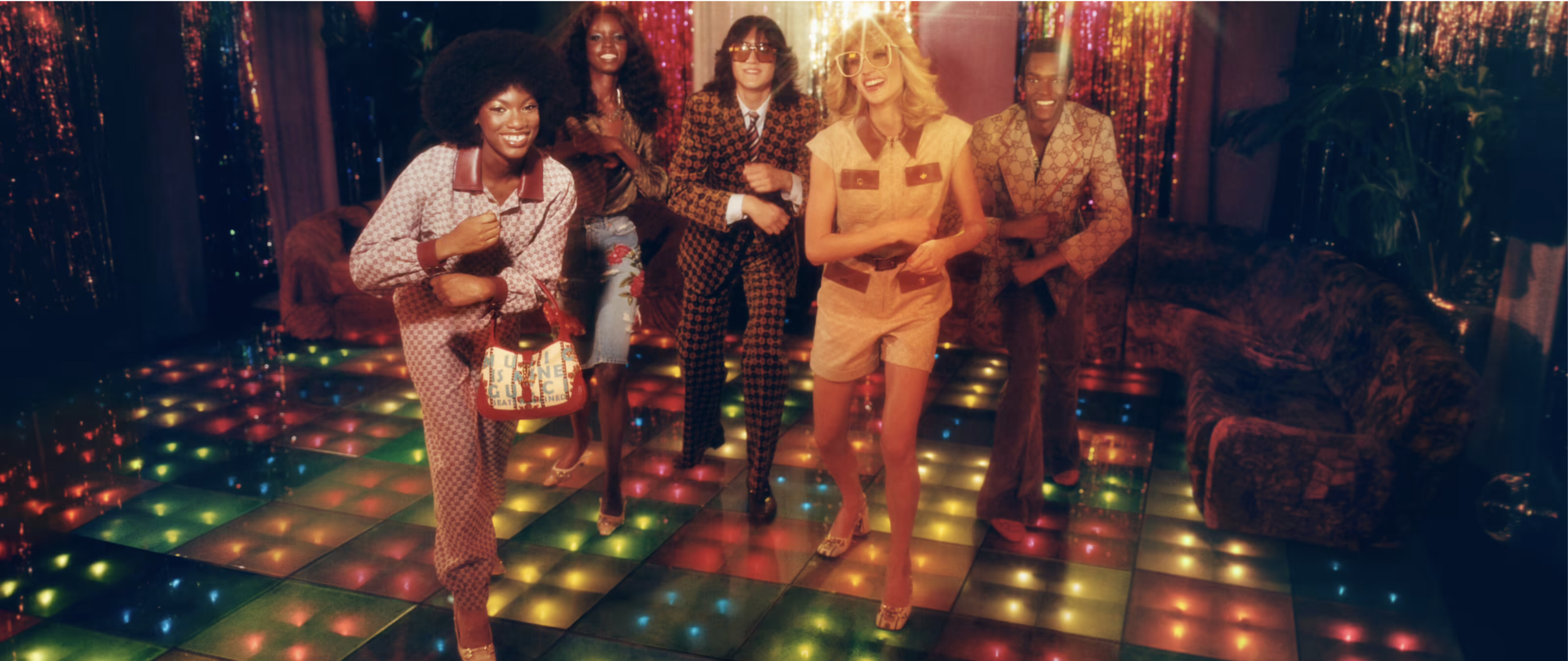
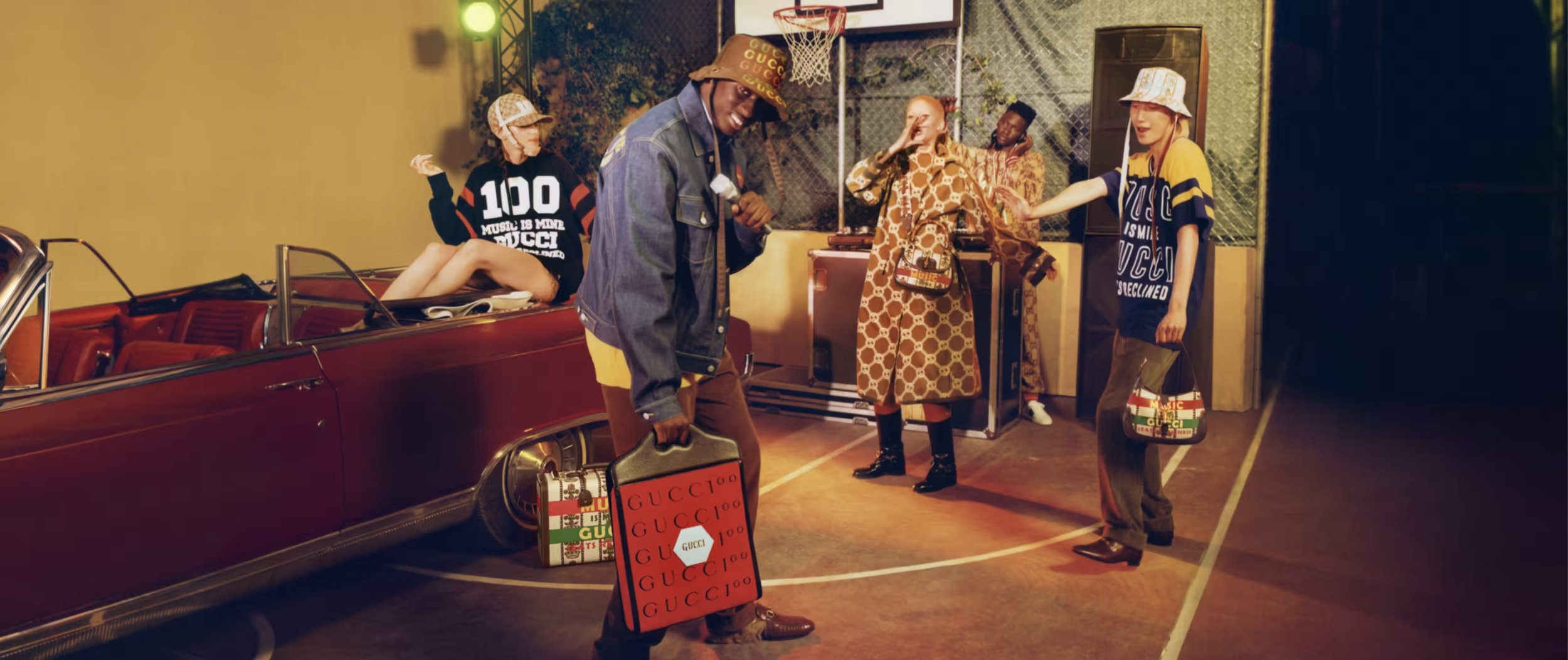
Upon researching the tradition of Gucci collaborations with musicians, not much comes up about music and Gucci before the 1990s and 2000s. Though, the fashion icons who donned Gucci in the 20th century are numerous: Grace Kelly, Jack Kennedy, Sophia Loren, and Princess Diana, to name a few).
Perhaps it’s more effective to start backwards, with the clues that Gucci itself has provided in promoting its centennial collection. To accompany Gucci 100, the brand created a series of playlists (available on Apple Music and Spotify) that appear to contain every song that mentions the word “Gucci”. From disco songs like Sister Sledge’s “He’s the Greatest Dancer”, to rock anthems like “Combination” by Aerosmith, to rap tracks like “Green Gucci Suit” by Rick Ross and Future, Gucci name-dropping has spanned many eras and genres of music.
However, the musical celebration of Gucci may not seem like news to us today. In a poll from 2015, mentions of Gucci in rap music far outnumbered any other brand. (Hypebeast) The Gucci label has become a staple reference that is synonymous with wealth and style. Like Bhad Bhabie’s “Gucci Flip-Flops”, sporting the double G logo could be considered a principle marker of success in the rap industry. Although Gucci-mania in rap seems solely characteristic of 2015-present, the influence of the brand can be traced back to a single fashion individual, Harlem fashion icon Dapper Dan.
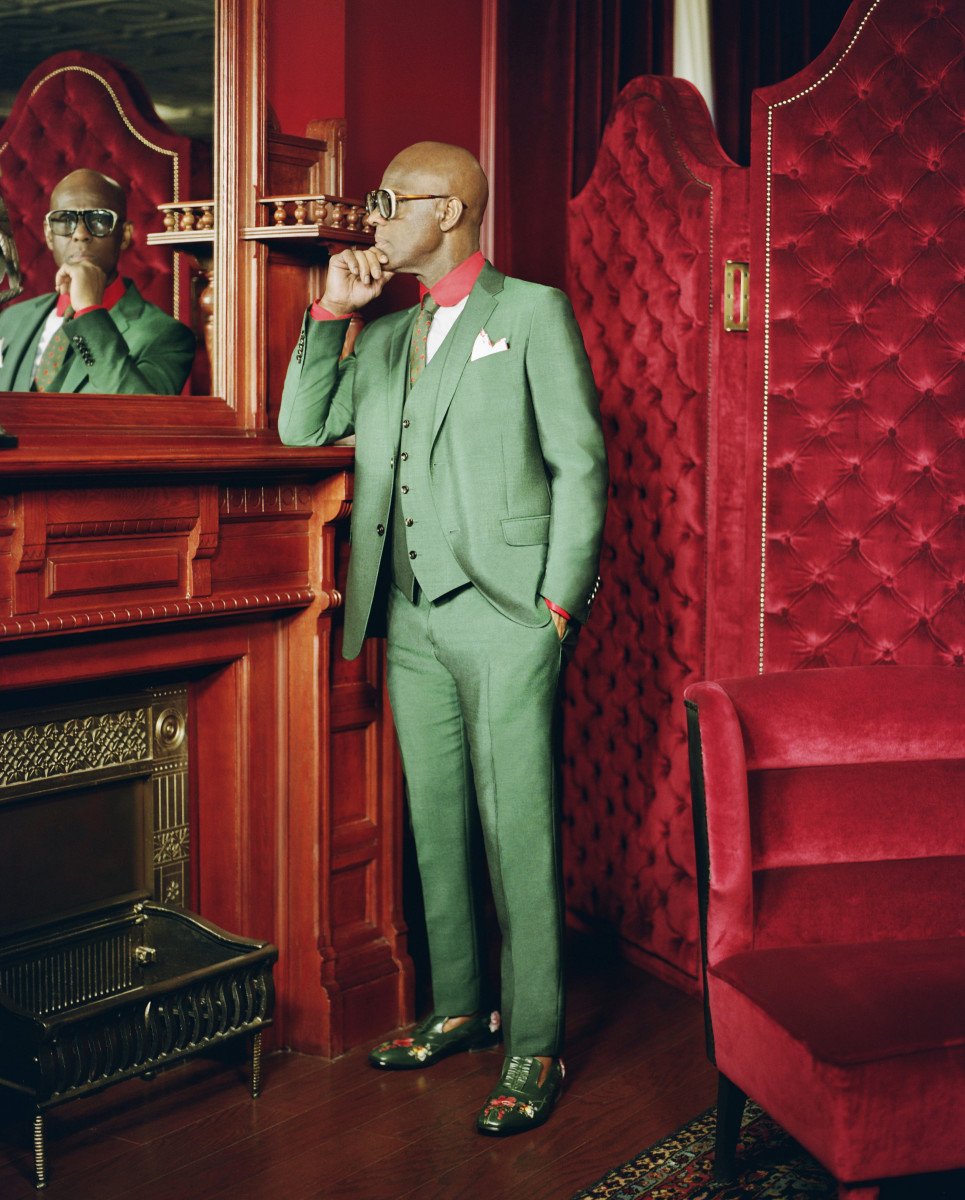
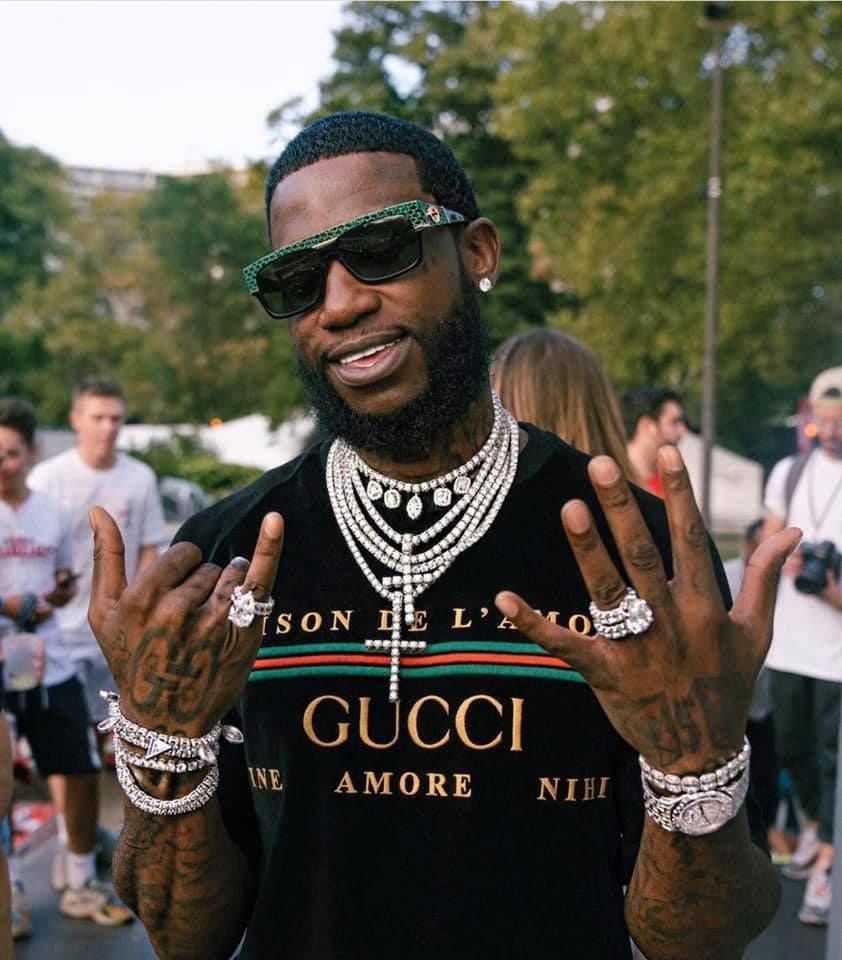
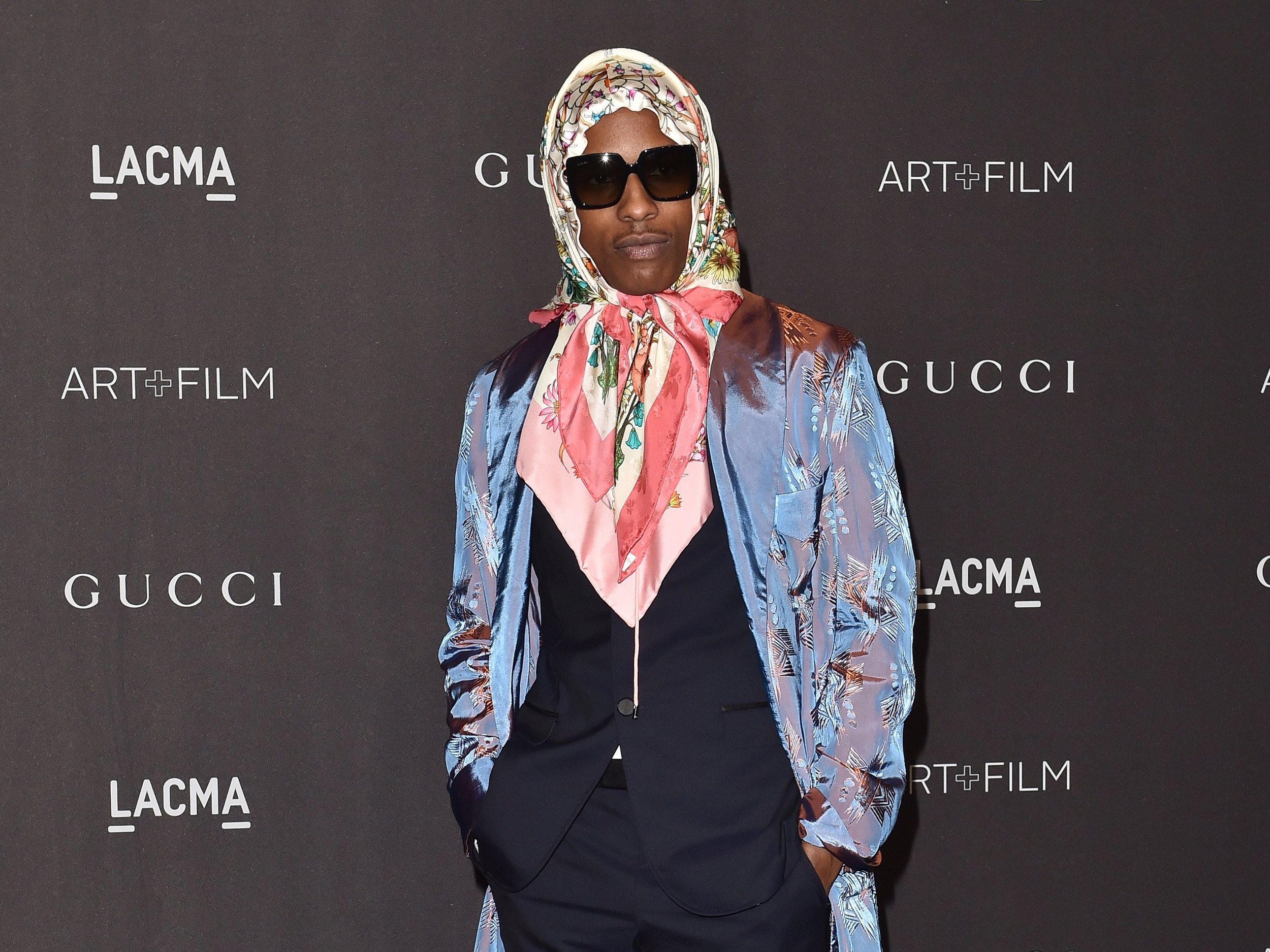

Dapper Dan’s clothing (designs that reincorporated logos of fashion houses like Fendi, Louis Vuitton, and of course, Gucci) was sported by rap musicians throughout the 80’s and 90’s. But in 1992, Fendi won a lawsuit against Dapper Dan for the use of its logo, prompting the closure of his Harlem boutique (NYT). Yet, his influence on rap musicians lives on. Searching for “rappers in Gucci” yields endless results, as Gucci logo-mania has persisted for over 30 years. Today, Gucci itself even dresses big names in the industry, like A$AP Rocky and Snoop Dogg. Despite Dapper Dan’s lasting legacy in fashion and music, the legacy of controversy with luxury brands lived on as well.
In 2018, Gucci was criticized for copying a Dapper Dan Louis Vuitton logo design from 1988. Though advocates for Gucci allege that the brand was merely taking inspiration from him, a history of designers and other large clothing brands stealing from Black designers and artists seems to undermine that claim. The coats exhibit striking visual similarities with puffed leather logo sleeves and a fur body, the only difference being the exchange of the LV logo for Gucci’s double G.
Yet, before the advent of Gucci’s popularity in the rap scene in the late 80’s to 90’s, the Gucci brand itself did not seem to engage frequently with musicians or the music industry, making their choice for the music-themed Gucci 100 all the more puzzling. In the 21st century, on the other hand, Gucci and music have been inextricably intertwined through the choices of muses by Gucci’s current Creative Director, Alessandro Michele. The most notable is, perhaps, pop prince Harry Styles. Both featured in campaigns and dressed by the label for public appearances, Styles has become the indisputably face of Gucci for our generation.
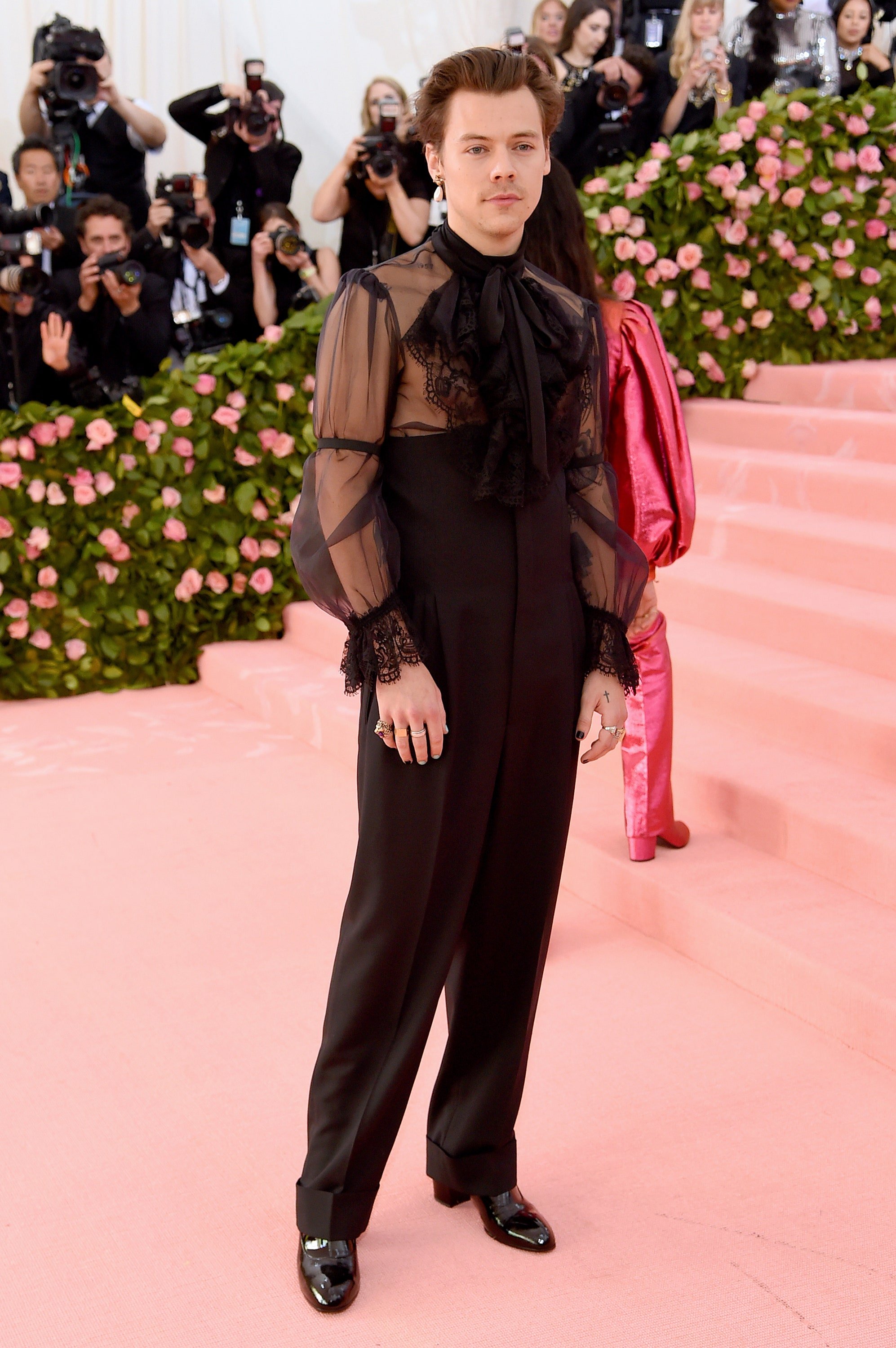
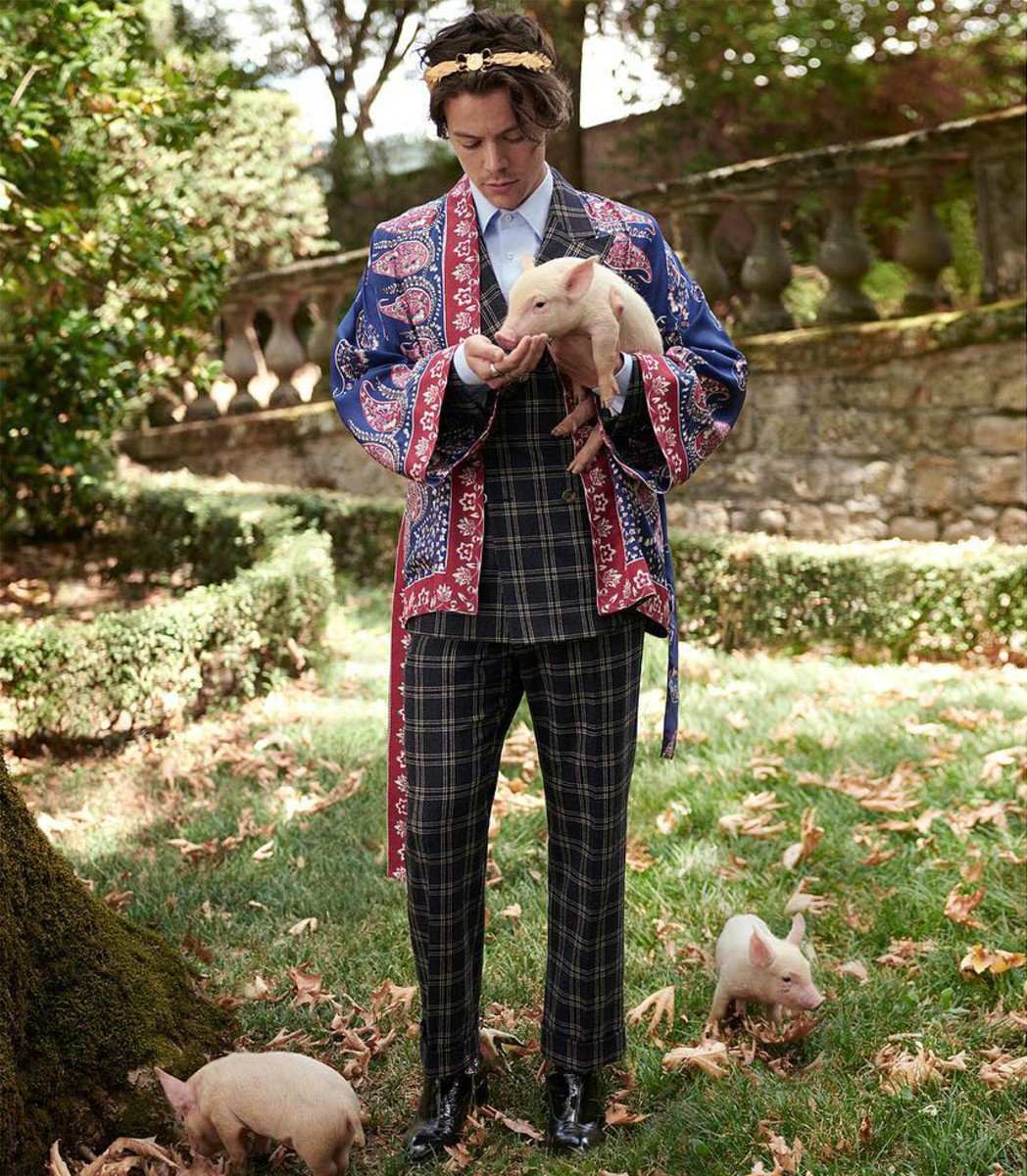
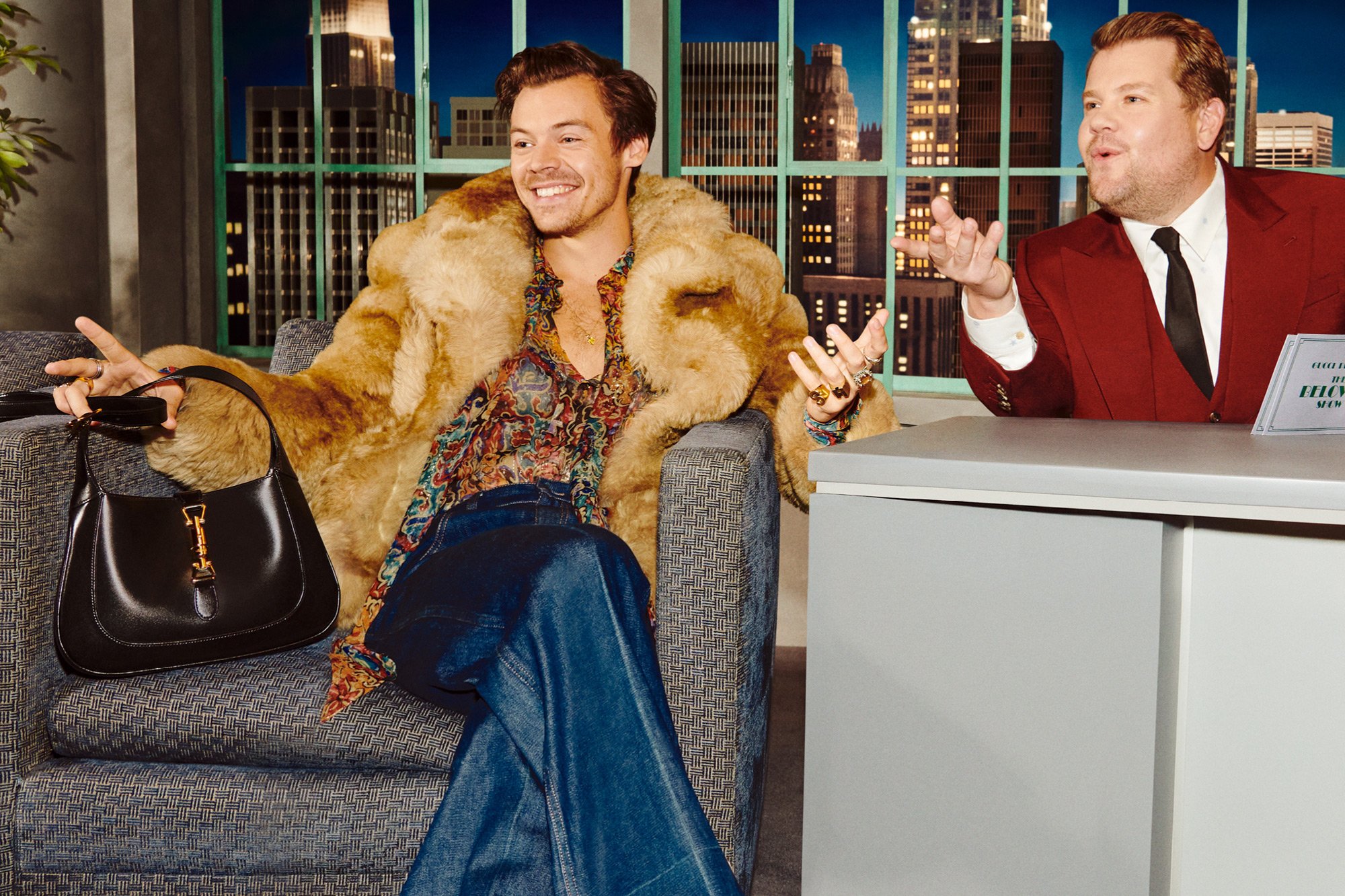
The current ethereal yet flamboyant yet preppy aesthetic of Michele’s designs has also been conveyed through other musical muses. Lead singer of Florence + the Machine, Florence Welch, has been the face of both Gucci jewelry and fragrance campaigns. Similarly, moody-pop icon Lana Del Rey was the face of the Gucci Guilty fragrance campaign in 2019, accompanied by actor Jared Leto. The previous year, Del Rey and Leto accompanied Michele to the 2018 “Heavenly Bodies” Met Gala. With a musical-star-studded group dressed in and promoting Gucci, Alessandro Michele has further sunk Gucci’s glamorous talons into the music industry.

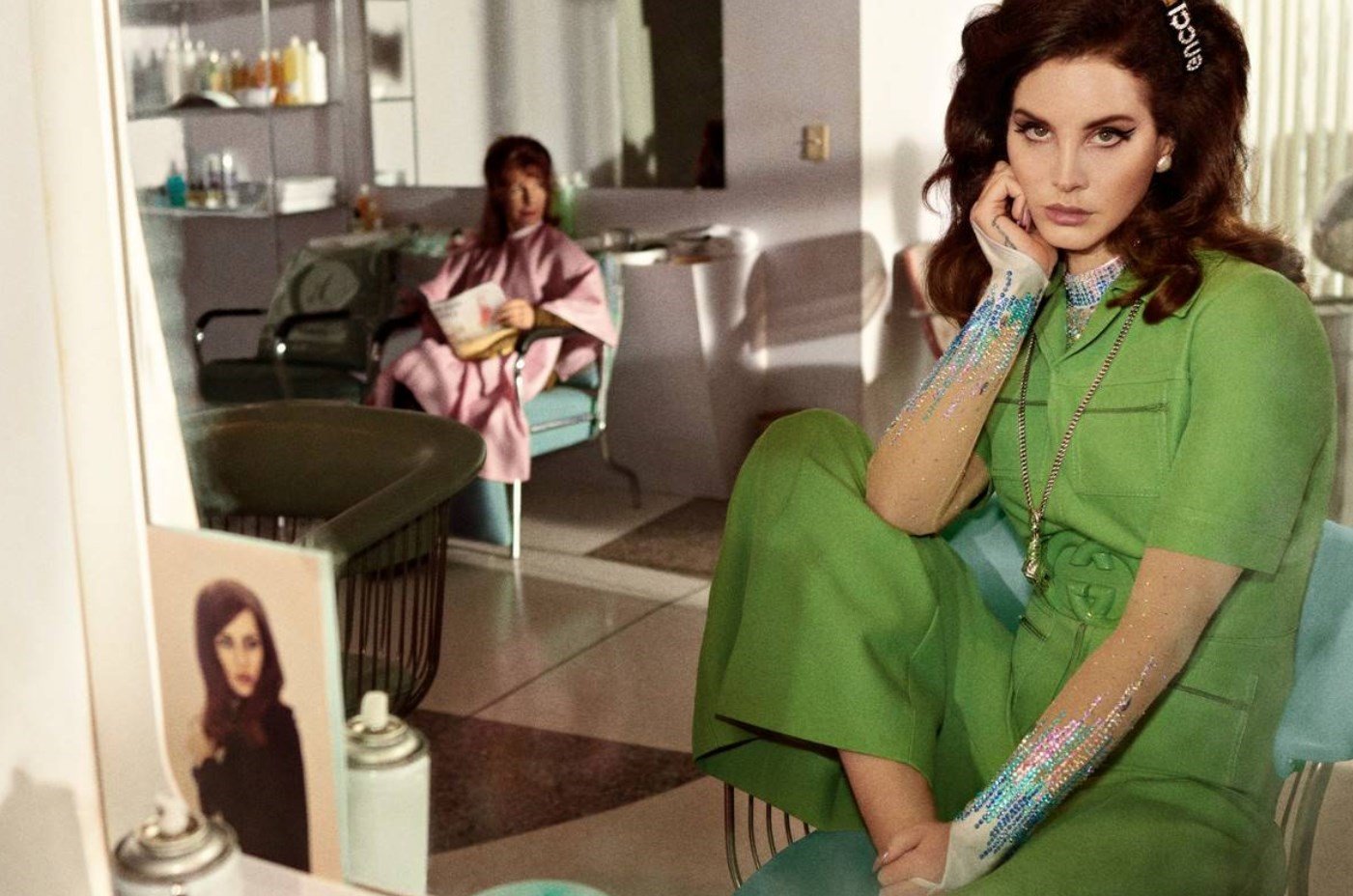
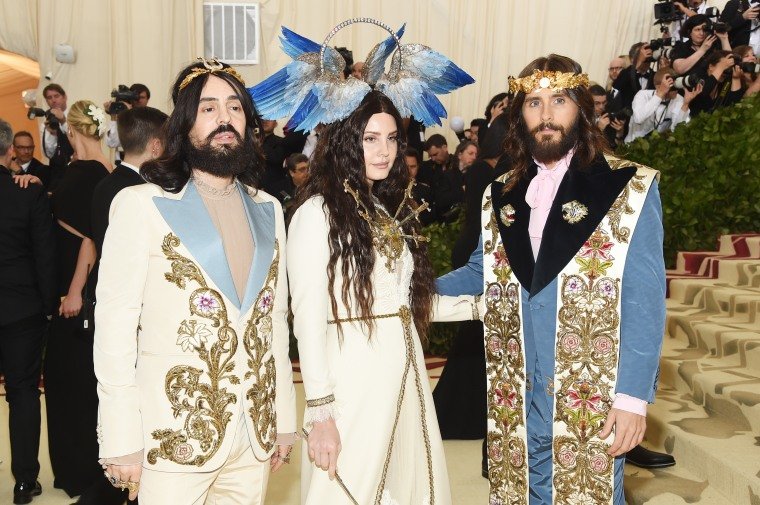
The savvy business strategy of penetrating the world of music has positioned Gucci as an integral part of the cultural zeitgeist. Whereas many designers limit their influence within the world of fashion, the expansion of Gucci into the music industry demonstrates to me that the brand is evolving with popular culture to appeal to younger generations (the next generation of Gucci customers). As a long time fan of Lana Del Rey and Harry Styles, Gucci’s connection to these contemporary pop artists connects me to the label by way of listening to and witnessing the public appearances of said artists who are now Michele muses. In recruiting popular musicians for campaigns and red carpets, Gucci targets the millions of fans that observe and emulate their style. Though this may not necessarily push fans such as myself to purchase Gucci (as it is a luxury brand), awareness and discussion of Gucci on the Internet skyrocket regardless. Furthermore, in listening to rap music, I find myself repeating the iconic lines referencing Gucci, inadvertently advertising the brand through the endorsements by rap artists. When my favorite artists are the faces of Gucci and some of the most popular music of the day drops constant references to it, members of Gen Z like myself cannot escape the grasp of Gucci-mania.
So, we return to our question: why is Gucci 100 based on music themes? The choice does not seem to align with the history of Gucci or its muses before the 21st century. Gucci has even stolen designs from Dapper Dan, who is credited with connecting Gucci and the rap industry. The foundation of the Gucci brand was based on crafting an aristocratic aesthetic, a legacy that can still be distinguished in Gucci’s current designs. Therefore, it seems that the choice for Gucci 100’s music collection is targeted to the standing of the fashion house in pop culture today. Contemporary music and youth culture is adamantly Gucci-crazed: it’s in their songs, in their feeds, on (some) of their bodies, and it’s in their minds. This year, Gucci was the most popular luxury brand online (Luxe Digital). While Gucci may have extrapolated their influence on the music industry beyond pop and rap to other genres to create a visually diverse and interesting capsule collection for their centennial, it is still undeniable that Gucci has the strongest hold of any designer on today’s music and cultural consciousness.
Featured image via Gucci.




